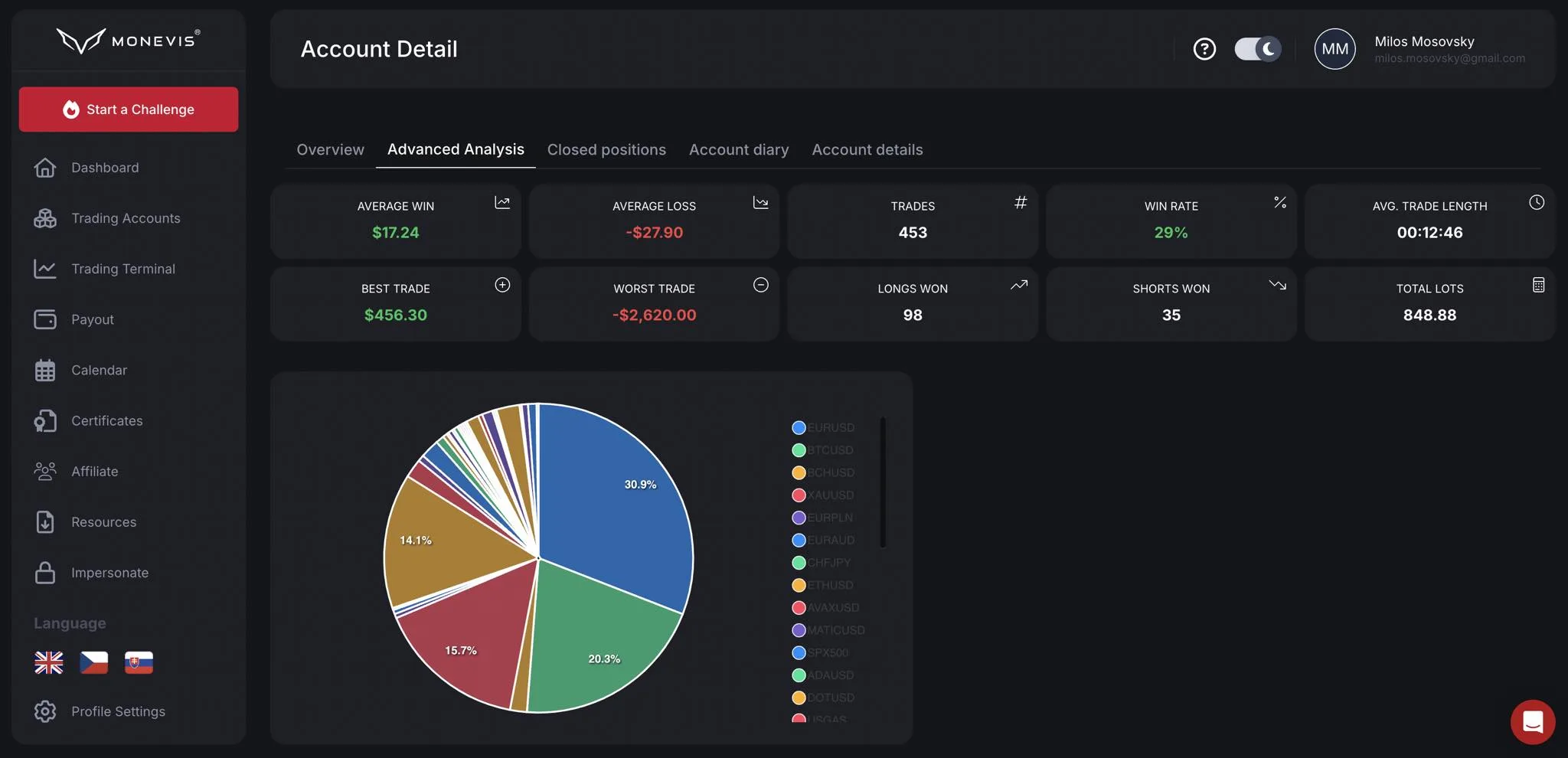HOT TIP: Dezlănțuie-ți potențialul de tranzacționare cu Monevis®

Mindfulness and Trading: Mastering Your Mindset with Monevis
At Monevis, we understand that success in trading goes beyond just knowing the markets; it involves mastering your mental and emotional responses. Mindfulness, or the practice of being fully present and aware, plays a crucial role in this. In this blog, we’ll explore how mindfulness can transform your trading mindset and provide practical tips for achieving greater control over your trading emotions and decisions.
The Role of Mindfulness in Trading
Understanding Reactions and Emotions
Our thoughts often trigger emotions, which in turn affect how we respond to different situations. In trading, our thoughts can lead to emotions that influence our actions, and those actions contribute to our trading outcomes. Over time, repeating similar situations with the same thoughts, emotions, and actions can make these thoughts feel like facts. This creates a cycle where automatic thoughts and emotions drive our behavior.
Take a Pause and Focus on Yourself
It’s essential to pause and focus solely on yourself. Ask yourself: What are your thoughts and assumptions while trading? Reflect on your best and worst trades—what were your initial thoughts? How did they change throughout the process? How did your emotions influence your decisions?
Observe Yourself
To be successful, you must learn to observe your reactions to specific circumstances continuously. You don’t always have to react immediately. Often, the best approach is to step back, take a deep breath, and observe the situation with a clear mind.
Challenge Your Assumptions
Let go of the assumptions you previously clung to. Avoid projecting these thoughts onto the market. You’ll quickly realize that these thoughts and assumptions do not define you; instead, you are defined by how you respond to them. Free yourself from their influence.
Self-Awareness and Self-Control
Understanding the triggers of your emotions is known as self-awareness. The ability to manage these triggers is called self-control. A trader who excels in these skills can stop, focus on their thoughts and feelings, and analyze them. They recognize their instinctive reactions and continuously monitor how their thoughts and feelings influence their actions. Before making significant decisions, they can step back and view the situation from a broader perspective to choose the best course of action.
Regulate Your Emotions
Pay attention to your emotions and work on regulating them. Recognize that no thought or emotion defines who you are. Separate yourself from your assumptions, thoughts, and emotions, and become an observer of them.
Cultivate Observational Skills
Developing the ability to observe your mental and emotional state is crucial for achieving genuine change. This skill distinguishes good traders from great ones.
Reconstruct Your Mindset
Recognizing that you and your thoughts are not the same allows you to reorganize your mindset in a way that best suits you. This realization holds significant power and is the only way to achieve the change you seek.
When you step back and view situations more objectively, you become much stronger. Release yourself from ingrained assumptions. Identify, recognize, and discard them. Reconstruct your mindset to align with your goals and strategies.
Neuroscience Perspective
In neuroscience, it’s said that we don’t actually see reality as it is; our brains gather data from our senses and create a virtual simulation. This simulation shapes how we perceive the world, including the markets. Be kind to yourself and create the most supportive mental environment. Believe in yourself, encourage yourself, and be your own best friend and number one fan.
Manage Negative Emotions
If you notice negative or overly intense emotions emerging, take a step back. Don’t let any thought or temporary emotion affect your long-term goals. Trust that the current situation will lead you where it needs to if your mind remains calm and you stick to your plan and strategy.
The Power of a Trading Journal
A trading journal can be an excellent tool to aid in this process. Documenting your thoughts and emotions during trading helps you anchor yourself in the moment and understand your internal processes better. Make entries before each trade, noting your feelings and the progression of events. Look for connections between specific situations, emotions, thoughts, actions, and outcomes.
If you find this challenging, consider reaching out to a performance coach who can provide additional guidance and support.
By incorporating mindfulness and effective self-observation into your trading routine, you can significantly enhance your trading performance and achieve your financial goals more consistently.
HOT TIP: Dezlănțuie-ți potențialul de tranzacționare cu Monevis®

